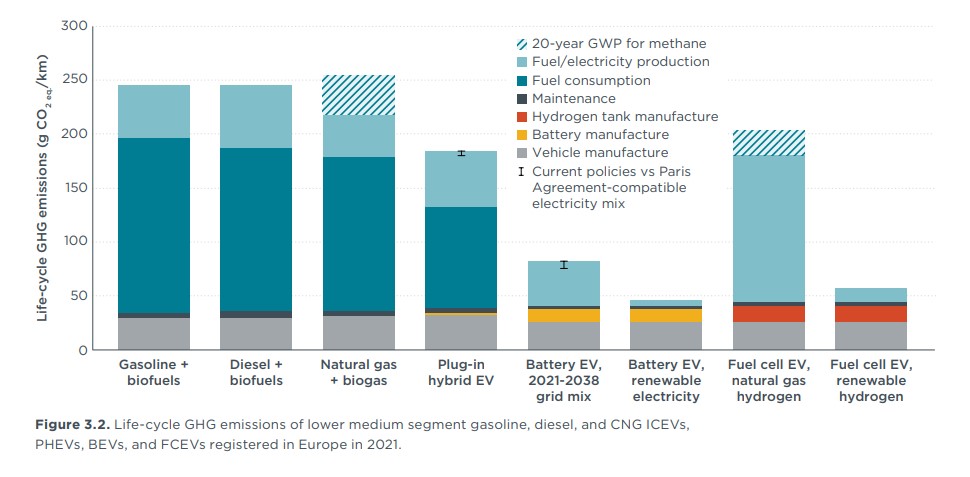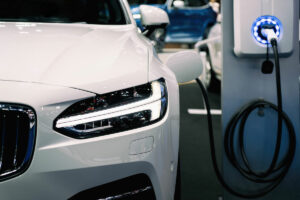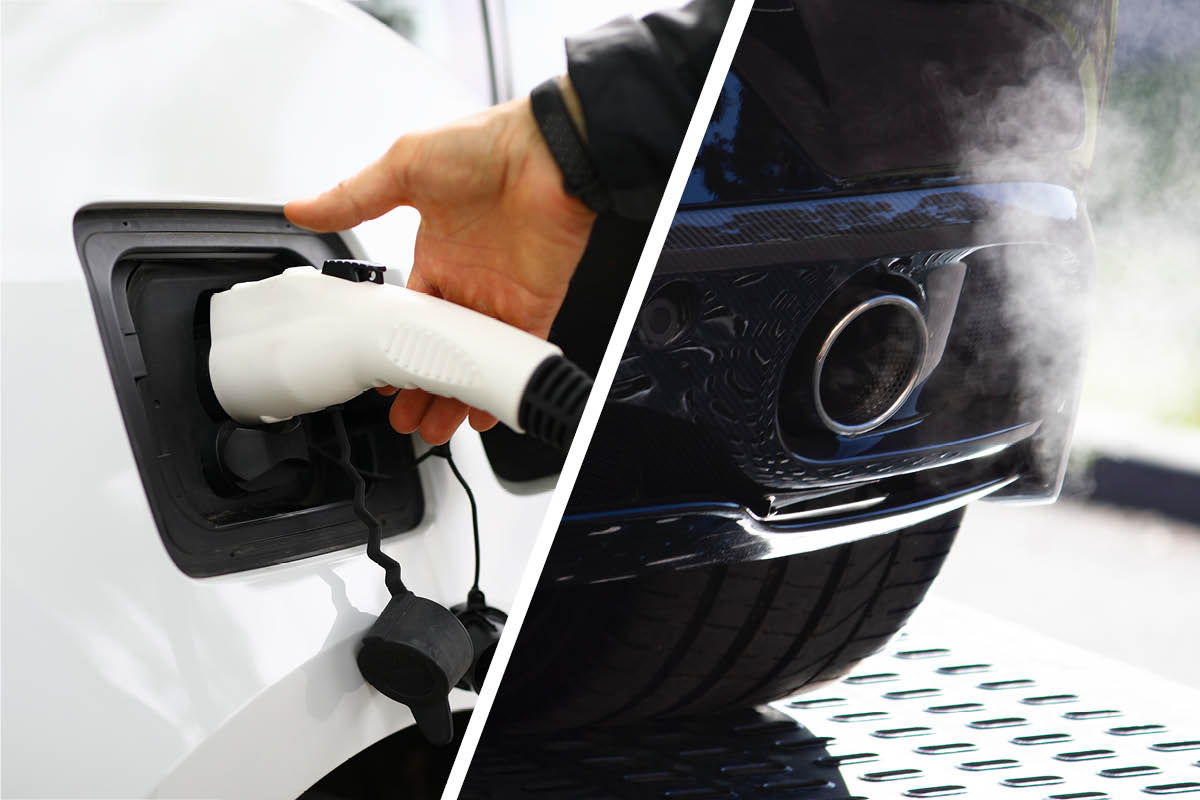In recent years, the automotive industry has undergone rapid development, with one aspect taking center stage: the comparison between electric cars and internal combustion engines. With growing environmental awareness and the need for sustainable mobility, alternative propulsion systems are gaining increasing significance. Electric vehicles have emerged as a promising solution, potentially offering lower CO₂ emissions and reduced dependence on fossil fuels. However, are they a realistic alternative to traditional internal combustion engines? We juxtapose the electric car and the combustion engine in several relevant aspects and engage in a direct comparison – Electric Car vs. Combustion Engine.
Acquisition Costs
An electric car and a combustion engine vehicle differ significantly in terms of acquisition costs. Generally, electric cars are currently more expensive than traditional combustion engine vehicles of similar size and performance. The higher acquisition cost of electric cars primarily result from the expensive batteries, which make up approximately one-third of the total price.
However, an electric motor has fewer moving parts compared to a conventional internal combustion engine, making it less susceptible to wear and resulting in lower maintenance costs.
Furthermore, it’s important to note that prices for electric cars are expected to decrease further with the advancement of technology and increasing demand. Batteries are becoming more cost-effective, and experts estimate that electric cars will cost about the same as combustion engine vehicles from around 2026 onwards.
Test an electric car?
If you would like to test whether electric vehicles are suitable for your fleet, consider trying out a car subscription.
Available with a minimum subscription period of just one month!
Charging Infrastructure for Electric Vehicles
The charging infrastructure for electric vehicles in Germany has made significant progress in recent years, but there is still some catching up to do compared to the refueling infrastructure for internal combustion engine vehicles. The availability of charging stations varies greatly by region. In large cities and urban centers, there is generally an adequate number of charging points, but in rural areas, the infrastructure can still be sparse.
In contrast, gasoline and diesel refueling stations are widespread and allow for quick refueling in a matter of minutes. This presents one of the primary challenges for electric vehicles, as charging at conventional charging stations can often take significantly more time depending on battery capacity and charging speed.
Despite these differences, companies, utilities, and the government continue to expand the charging infrastructure to promote the acceptance of electric cars. The introduction of fast-charging stations and the integration of charging points at an increasing number of locations such as parking lots, shopping centers, and highways aim to reduce range anxiety and enhance the practicality of electric vehicles for everyday use.

Electric Vehicle vs. Internal Combustion Engine: Range
The range of electric vehicles, when compared to conventional internal combustion engine vehicles, can vary and is dependent on various factors, including battery capacity, drivetrain efficiency, and driving behavior. In general, electric cars in the early years of electromobility often had limited range and couldn’t compete with the extended ranges of internal combustion engines.
However, technology has continuously evolved, and modern electric vehicles now offer significantly improved ranges. Some electric cars can now travel over 500 kilometers on a single charge. In contrast, conventional gasoline-powered vehicles typically have a range of about 600 to 800 kilometers on a full tank, depending on the vehicle type and fuel efficiency.
It’s important to note that the range of electric vehicles is also influenced by other factors, such as outside temperature, the use of heating or air conditioning, driving speed, and driving style. Electric car range tends to decrease in cold weather and at high speeds, while it often performs better in urban environments or at lower speeds.
Carbon Balance

The consideration of electric vehicles and internal combustion engine vehicles in terms of their environmental friendliness is a crucial aspect when comparing both propulsion systems. Both have environmental impacts, both during production and during vehicle use. However, which propulsion system overall generates lower greenhouse gas emissions and thus has a more positive climate balance?
A recent study by the International Council on Clean Transportation (ICCT)open_in_new reveals that battery electric vehicles already have a better greenhouse gas emissions profile compared to conventionally powered vehicles. This assessment takes into account the entire lifecycle of the vehicles, including production, disposal, and in the case of electric vehicles, the batteries. The results apply not only to Europe and the United States but also to countries with a high share of coal-based electricity generation, such as China and India.
The findings indicate that the greenhouse gas emissions of an electric compact car in Europe are currently 66 to 69 percent lower than those of a comparable new gasoline-powered vehicle. This calculation considers both the expected electricity mix during the electric vehicle’s usage period (from 2021 to 2038) and a mileage of 234,000 kilometers, using only one battery.
With full operation powered by renewable energy sources, the electric compact car could achieve up to 81 percent lower lifecycle emissions compared to a gasoline vehicle. The researchers anticipate that as renewable energy sources expand, the electricity mix will continue to evolve. According to the study, the emissions advantage of 66 to 69 percent for an electric compact car compared to a gasoline car could increase to 74 to 77 percent in the future. This could contribute to reducing environmental impacts in the transportation sector as we move forward.
Car insurance
Insurance costs depend on various factors such as the insurance provider, driver history, vehicle model, and location. Due to the higher acquisition costs, it is advisable to opt for comprehensive insurance coverage for an electric car. In this case, coverage should include the battery, towing, and battery damage. Some insurers offer specialized battery insurance for electric vehicles. Additionally, environmentally-friendly rates or discounts for electric cars may be available. To find the best and most cost-effective option, it is recommended to compare multiple insurance quotes.
No internal combustion engines in the future
According to the European Parliament, emissions in the transportation sector have steadily increased since 1990. Passenger cars, as well as light and heavy commercial vehicles, account for over 70% of the total transportation emissions. Therefore, the European Parliamentopen_in_new has decided that as of 2035, no new passenger cars powered by diesel or gasoline will be allowed to be registered. It is planned that vehicles exclusively fueled by E-Fuels will be exempt from this restriction. The goal is to achieve climate neutrality by 2050. Existing vehicles are not affected by this new law; however, emission standards may be introduced to further improve air quality.
Summary Electric Car vs. Combustion Vehicle:
Many aspects need to be considered when comparing electric cars to combustion vehicles. Electric cars have the advantage of producing no direct emissions during operation, contributing to improved air quality and reduced local environmental pollution. Additionally, they are more energy-efficient and operate more quietly. The source of electricity is also a crucial factor in terms of environmental friendliness.
Electric cars often have higher upfront costs but lower operating and maintenance expenses. The limited range and charging infrastructure are areas that can still be improved, but they are continually being enhanced. Ultimately, the choice between an electric car and a combustion vehicle depends not only on individual needs but also on environmental impacts and regional circumstances.
The essentials regarding the topic: Electric Car vs. Combustion Engine Car.
Electric vehicles have the advantage of emission-free driving and are energy-efficient.
Internal combustion engine vehicles have an established infrastructure and are more cost-effective to purchase.
The choice between the two depends on individual needs, environmental impact, and charging infrastructure.
Additional Fleet Management Knowledge
If you enjoyed this post and would like to learn more about this topic, we recommend these articles to you.

Car subscription for electric cars: everything you need to know




